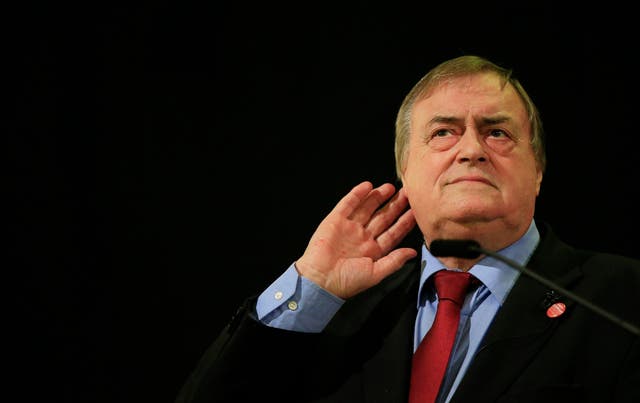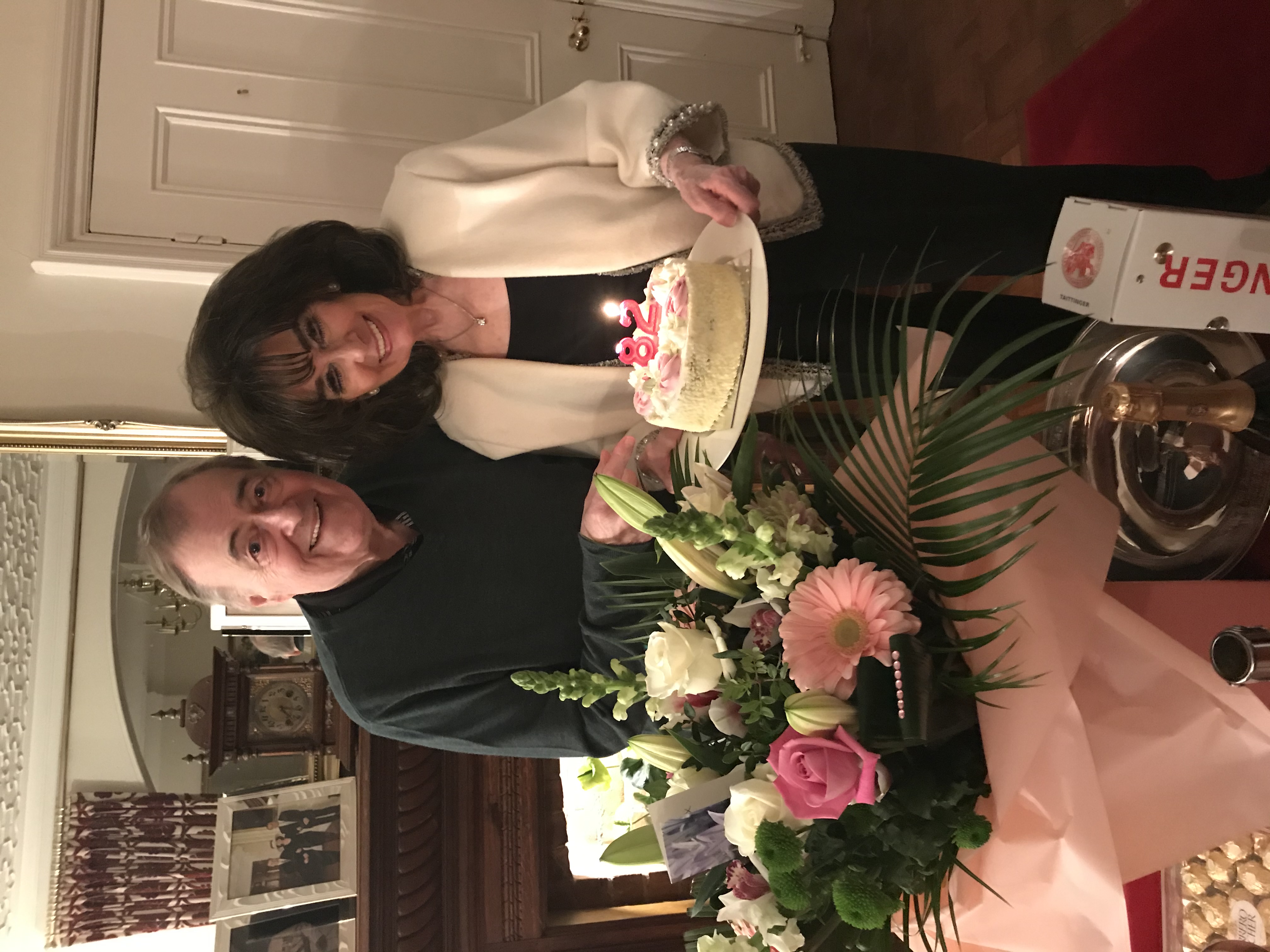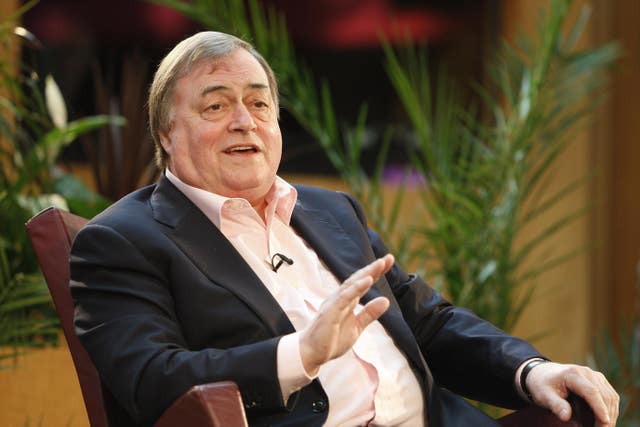Former deputy prime minister John Prescott has died aged 86 following a battle with Alzheimer’s, his family has announced.
His family said he had “spent his life trying to improve the lives of others, fighting for social justice and protecting the environment”.
The former trade union activist and ex-merchant seaman died “peacefully” and surrounded by relatives at his care home, they said.
Lord Prescott was a key figure of Sir Tony Blair’s New Labour project, seen by many as custodian of the party’s traditional values in the face of a modernising leadership.
He was ennobled in 2010 and introduced to the upper chamber as Baron Prescott of Kingston upon Hull having served for four decades as an MP for the city.
In a statement released after his death, his wife Pauline and sons Johnathan and David said that representing the people of Hull had been “his greatest honour”.
“We are deeply saddened to inform you that our beloved husband, father and grandfather, John Prescott, passed away peacefully yesterday at the age of 86,” they said.
“He did so surrounded by the love of his family and the jazz music of Marian Montgomery.

“John spent his life trying to improve the lives of others, fighting for social justice and protecting the environment, doing so from his time as a waiter on the cruise liners to becoming Britain’s longest serving deputy prime minister.
“John dearly loved his home of Hull and representing its people in Parliament for 40 years was his greatest honour. We would like to thank the amazing NHS doctors and nurses who cared for him after his stroke in 2019 and the dedicated staff at the care home where he passed away after latterly living with Alzheimer’s.
“In lieu of flowers and if you wish to do so, you can donate to Alzheimer’s Research UK.

“As you can imagine, our family needs to process our grief so we respectfully request time and space to mourn in private. Thank you.”
Former US vice president Al Gore, who worked with Lord Prescott on the Kyoto Protocol climate change agreement in 1997, said he had “never worked with anyone in politics — on my side of the pond or his — quite like John Prescott”.
Mr Gore said in a statement: “He possessed an inherent ability to connect with people about the issues that mattered to them — a talent that others spend years studying and cultivating, but that was second nature to him.
“He fought like hell to negotiate the Kyoto Protocol and was an unwavering champion of climate action for decades to come. I’m forever grateful to John for that commitment to solving the climate crisis and will miss him as a dear friend.”
Lord Prescott ceased to be a member of the upper House in July this year after facing health difficulties.
He had only spoken once in the chamber since suffering a stroke in 2019, official records show, and had not voted since February 2023.
Over a parliamentary career spanning more than half a century, Lord Prescott served for 10 years as deputy prime minister after Labour’s 1997 general election landslide.

At times short-tempered, he once famously punched a protester who threw an egg at him during an election campaign visit to North Wales in 2001.
But during much of his time in office, he acted as a mediator in the often turbulent relationship between Sir Tony and chancellor Gordon Brown.
He also oversaw the environment, transport and the regions, a brief which included helping to negotiate the international Kyoto Protocol on climate change.
21 years ago today. 🦊🥚👊 https://t.co/AtJDf4VtUC
— John Prescott (@johnprescott) May 16, 2022
Lord Prescott was a loyal supporter of Sir Tony in office but subsequently critical of parts of New Labour’s legacy, denouncing Britain’s involvement in the Iraq War.
He also strongly defended Jeremy Corbyn during his time as party leader in the face of fierce criticism.
Born in Prestatyn in Wales on May 31 1938 the son of a railwayman, Lord Prescott left school at the age of 15 to work as a trainee chef and then as a steward on the Cunard Line before entering politics.
In a private letter in 2007, Sir Tony said his former deputy’s role “smoothing out problems, sorting out colleagues and trouble-shooting” had been an “integral part of getting things done”.
The former prime minister said: “The completely unique Prescott blend of charm and brutality – made always more effective by the unpredictability of which would be predominant – got you through the decade, kept the government together and above all, gave me a lot of fun. I was lucky to have you as my deputy.”




Why are you making commenting on The National only available to subscribers?
We know there are thousands of National readers who want to debate, argue and go back and forth in the comments section of our stories. We’ve got the most informed readers in Scotland, asking each other the big questions about the future of our country.
Unfortunately, though, these important debates are being spoiled by a vocal minority of trolls who aren’t really interested in the issues, try to derail the conversations, register under fake names, and post vile abuse.
So that’s why we’ve decided to make the ability to comment only available to our paying subscribers. That way, all the trolls who post abuse on our website will have to pay if they want to join the debate – and risk a permanent ban from the account that they subscribe with.
The conversation will go back to what it should be about – people who care passionately about the issues, but disagree constructively on what we should do about them. Let’s get that debate started!
Callum Baird, Editor of The National
Comments: Our rules
We want our comments to be a lively and valuable part of our community - a place where readers can debate and engage with the most important local issues. The ability to comment on our stories is a privilege, not a right, however, and that privilege may be withdrawn if it is abused or misused.
Please report any comments that break our rules.
Read the rules hereLast Updated:
Report this comment Cancel